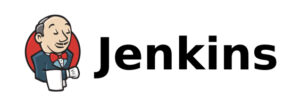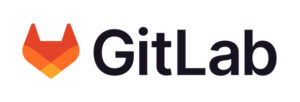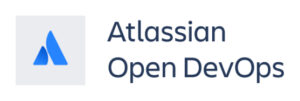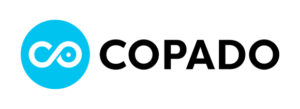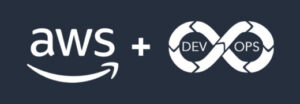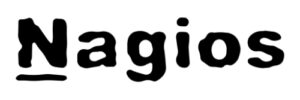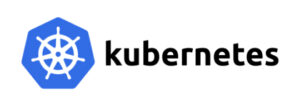
In this blog, you will learn about the DevOps platform tools and some of the best available for your DevOps teams.
Before jumping to the platforms, let’s quickly go through a definition of DevOps platforms.
What is a DevOps platform?
DevOps platforms provide fully integrated capabilities to collaborate and automate software development, deployment, and IT operations using Agile and DevOps practices.
These platforms include features such as
- Continuous integration
- Continuous delivery (CI/CD)
- Automated and constant testing
- Infrastructure management and monitoring
DevOps platform integration provides better performance monitoring, easier troubleshooting, faster builds and deployments, and higher customer satisfaction.
Next, let’s see the ten best DevOps platform tools you can use.
10 Best DevOps Platforms
1. Jenkins
Jenkins is a popular DevOps platform as it is a self-contained, Java-based automation server that allows you to automate building, testing, and deploying your software continuously.
Key features:
- You can automate the build process through CI/CD pipelines and maintain them through code.
- Distributed architecture (Master-Slave) allows you to run multiple builds on different systems, accelerating the software delivery process.
- Jenkins is easy to set up and work with its simple GUI and has 1800+ plugins, expanding its integration capabilities with any CI/CD toolchain tool.
Jenkins allows you to schedule builds, supports many programming languages, and is free to use.
2. GitLab
GitLab is a web-based enterprise DevOps platform primarily providing code repository features and a large variety of tools for CI/CD, software development, project management, and more.
Key features:
- GitLab offers source code management where teams can securely cooperate, coordinate, and exchange code.
- You can also build advanced CI/CD pipelines, which allow you to schedule pipelines, horizontally scale them, cancel failed pipelines, use built-in CI/CD features, and more.
- To have robust and secure pipelines, GitLab enables you to integrate its security features, such as SAST, DAST, container and dependency scanning, secret detection, and more, with your CI/CD pipelines.
- Moreover, it provides features such as error tracking, project management, artifact registry, and more.
It’s free for individuals and promotes paid plans for multi-team usage starting from $29/user/month.
3. Azure DevOps
Azure DevOps is a collection of development tools where Microsoft Azure provides DevOps services for users. DevOps teams can use this as an integrated, cloud-based environment for rapid and efficient software developments and deployments.
Key tools/features:
- Azure Boards: Provides agile tools for planning, tracking, and discussing work across DevOps teams.
- Azure Pipelines: Supports CI/CD through automated pipelines and deploying applications to cloud or on-premise environments.
- Azure Repos: Offers cloud-hosted, private git repositories for source code management.
- Azure Test Plans: A set of manual and exploratory tools for testing applications before deploying.
- Azure Artifacts: You can create, host, and exchange packages with DevOps teams and include them in Azure Pipelines.
Azure DevOps also provides tools for more DevOps practices while offering a pay-as-you-go pricing model with free credits.
4. Open DevOps by Atlassian
Open DevOps by Atlassian is another DevOps platform designed to provide open, flexible, and interconnected services supporting a streamlined DevOps cycle.
Key features:
- Open DevOps platform enables you to streamline your CI/CD with Bitbucket Pipelines or any other CI/CD tool.
- You can use Jira as an agile planning tool that is integral to the application delivery lifecycle.
- It also lets you quickly alert your teams for critical issues and enable them to take action immediately.
- Open DevOps enhances the integration capabilities with Atlassian products like Jira, Bitbucket, Confluence, etc., as well as third-party tools such as GitHub, GitLab, and Jenkins.
Open DevOps is free for a limited number of users and can be upgraded to increase user counts.
5. Copado
Copado is a powerful DevOps platform specially designed for Salesforce environments, making it a unique solution. It helps enhance the application delivery and deployment efficiently.
Key features:
- CI pipelines with built-in automation allow quality builds and seamless deployments.
- You can integrate end-to-end testing, security, and compliance into CI/CD pipelines, ensuring continuous quality.
- You can also centralize and automate tasks using tools that provide advanced and lower coding capabilities.
- You can use Copado’s built-in security framework, governance controls, and cybersecurity support to secure your developments and deployments.
- Copado provides pre-built integrations with version control, security, ALM, and testing tools.
Pricing starts at $1,000/month, or you can request custom pricing.
6. Octopus Deploy
Octopus Deploy is a popular application deployment tool that makes it easy to automate software deployments and deliveries from a single place.
Key features:
- You can integrate Octopus Deploy with your preferred CI/CD tool, ensuring seamless deployment & automation.
- You can experience lower downtime as much as possible during your deployments.
- With Config as Code, you can keep your configurations in a version-controlled environment such as Git, ensuring consistency in your deployments.
- You can integrate Octopus Deploy with many version control, cloud platforms, issue-tracking tools, and more.
You can use this tool as a cloud-based solution or install it on your system, and the pricing starts at $360/year.
7. Codefresh
Codefresh is a modern CI/CD platform for microservices and Kubernetes applications. It simplifies the software development and deployment processes for organizations.
Key features:
- You can easily optimize your build pipelines with caching, parallelization, support for GitOps workflows, flexible triggers, and integrations with various CI tools.
- Codefresh’s dashboards enable you to track codes, configurations, and environment changes made during the build and deployment stages.
- Codefresh provides seamless integrations to work with Docker images and has an integrated Helm repository to manage and deploy Helm charts directly within the platform.
Codefresh Community Edition is free, and paid plans are available for teams and organizations with additional benefits.
8. AWS DevOps
You can leverage AWS as a DevOps platform, as it is a suite of tools designed to support DevOps practices.
Key tools/features:
- AWS CodeCommit: Providing cloud-hosted private git repositories for source control.
- AWS CodeBuild: Compile source codes, test, and build packages for deployment.
- AWS CodePipeline: CI/CD service for fast and reliable software delivery.
- AWS CodeDeploy: Automates the application deployment for AWS compute services and on-premise servers.
There are more services such as Amazon ECS, EKS, ECR, AWS CloudFormation, available to streamline your DevOps practices, and it offers a pay-as-you-go pricing model.
9. Nagios
Nagios is a flexible and powerful tool for monitoring your IT infrastructure. It is designed to find any issues affecting your infrastructure’s functionality before they impact you.
Key features:
- Nagios provides advanced real-time monitoring features, such as service, network, and system health monitoring, to ensure your systems’ high availability and performance.
- It enables interaction with customizable dashboards to actively monitor your key metrics, identify trends, and make decisions.
- Its shared views and alerting capabilities enable teams to collaborate, respond faster to issues, and minimize downtime while converting your monitoring data into detailed reports.
Nagios offers a free version, Nagios Core, and a paid version, Nagios XI, which has more advanced features starting from $2,495.
10. Kubernetes
Kubernetes (K8s) is a container orchestration tool DevOps teams use worldwide. This tool can automate the application deployment process, making your applications highly available and reliable.
Key features:
- K8s automates deploying, managing, and scaling processes for containerized applications efficiently, reducing human intervention.
- It detects failed or unhealthy nodes and replaces or restarts them. Also, it empowers load balancing by distributing workload over available nodes for continuous availability.
- Kubernetes promotes its portability, which enables you to have it on public, private, multi-cloud, or even your on-premise environments, providing great flexibility.
You can integrate Kubernetes with various CI/CD and monitoring and logging tools, and it is free for all users.
Conclusion
In conclusion, the right DevOps platform can optimize your DevOps team’s productivity and application quality, streamlining software developments and IT operations. Each platform listed offers common and specific features, and based on the features and pricing plans, you can select the right one that aligns with your specifications and budget.






